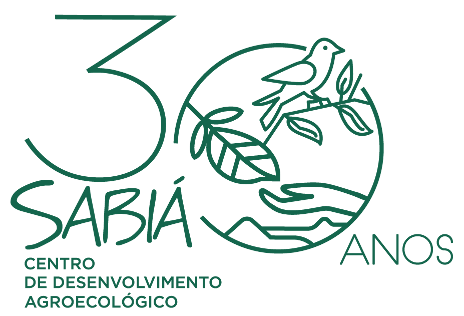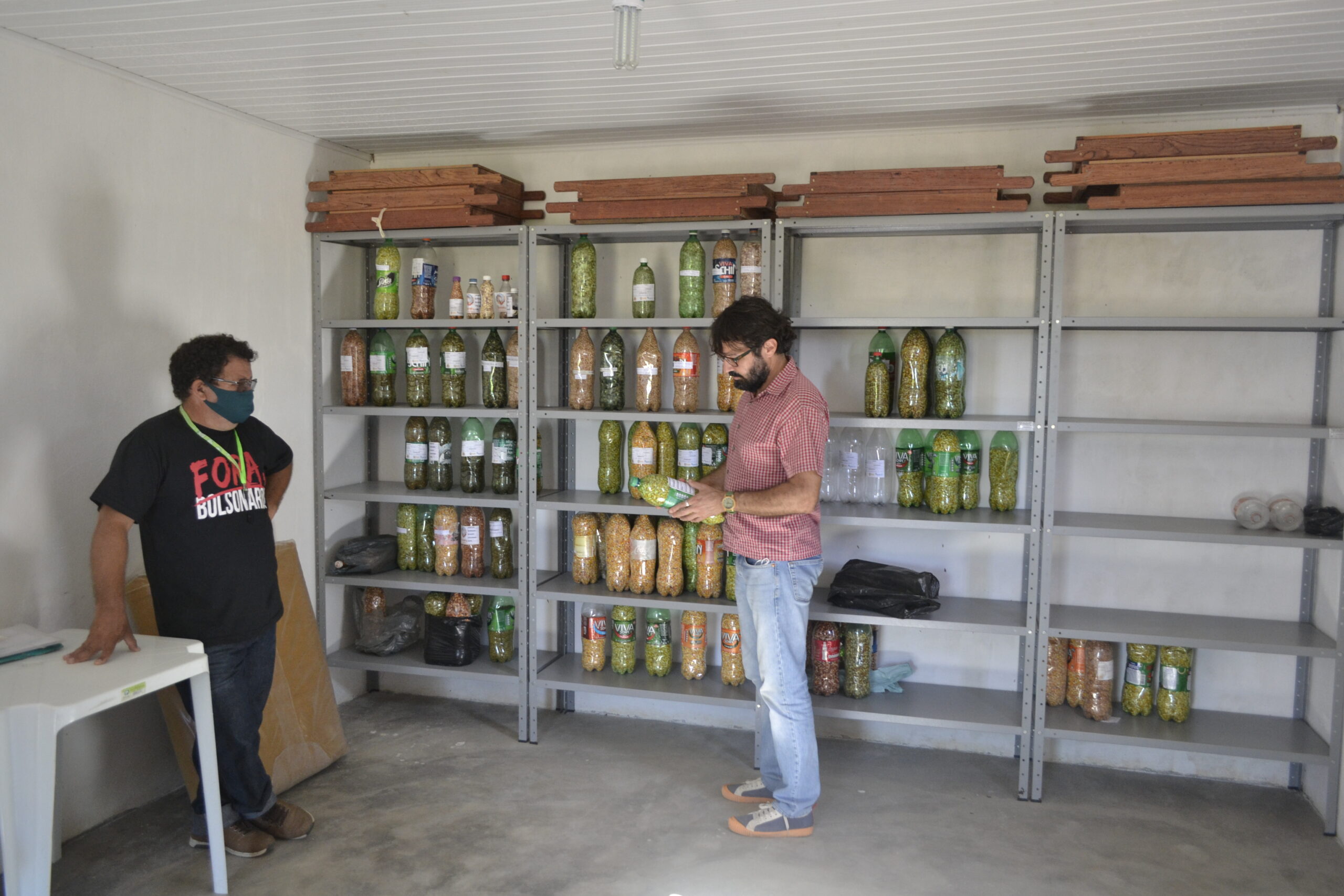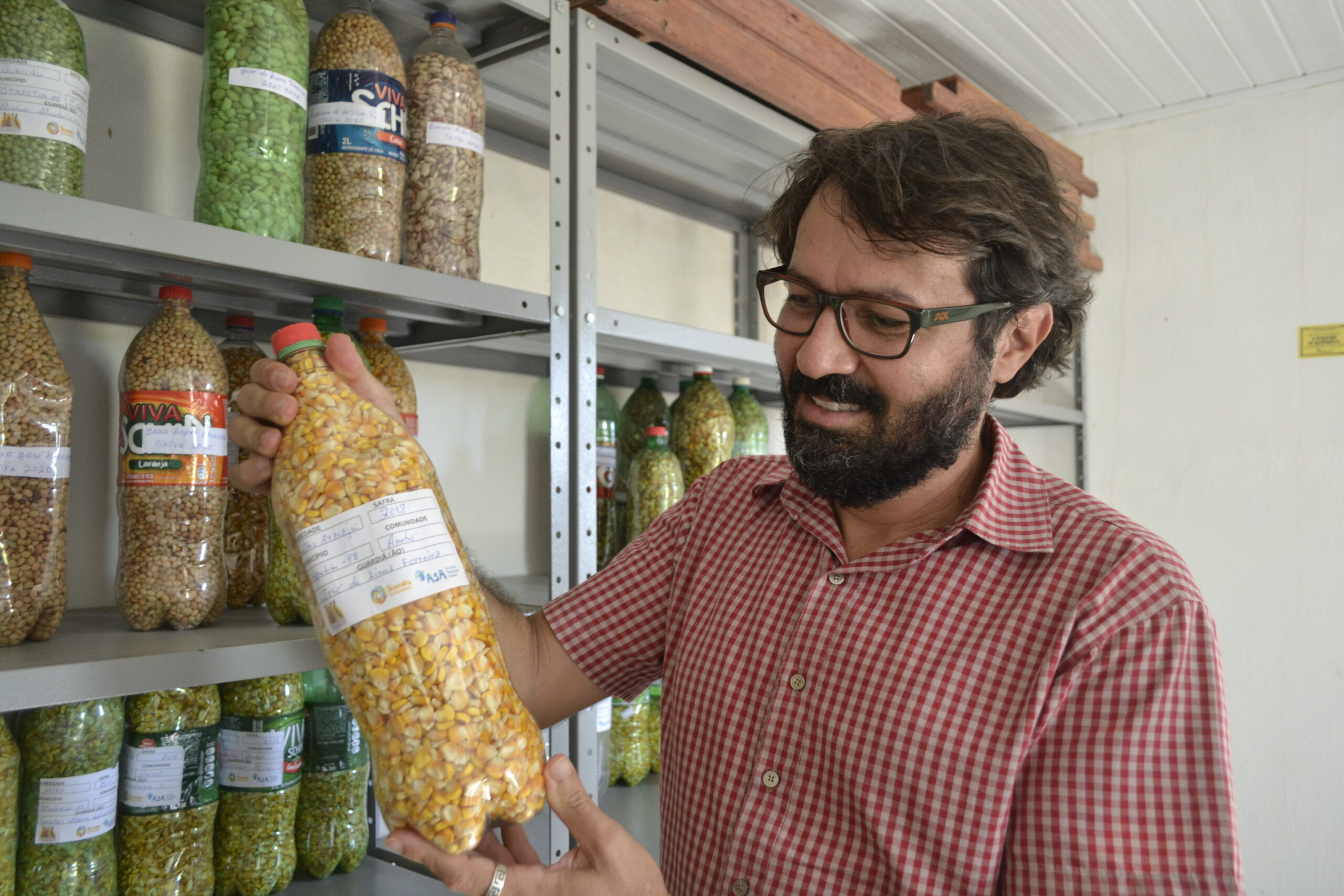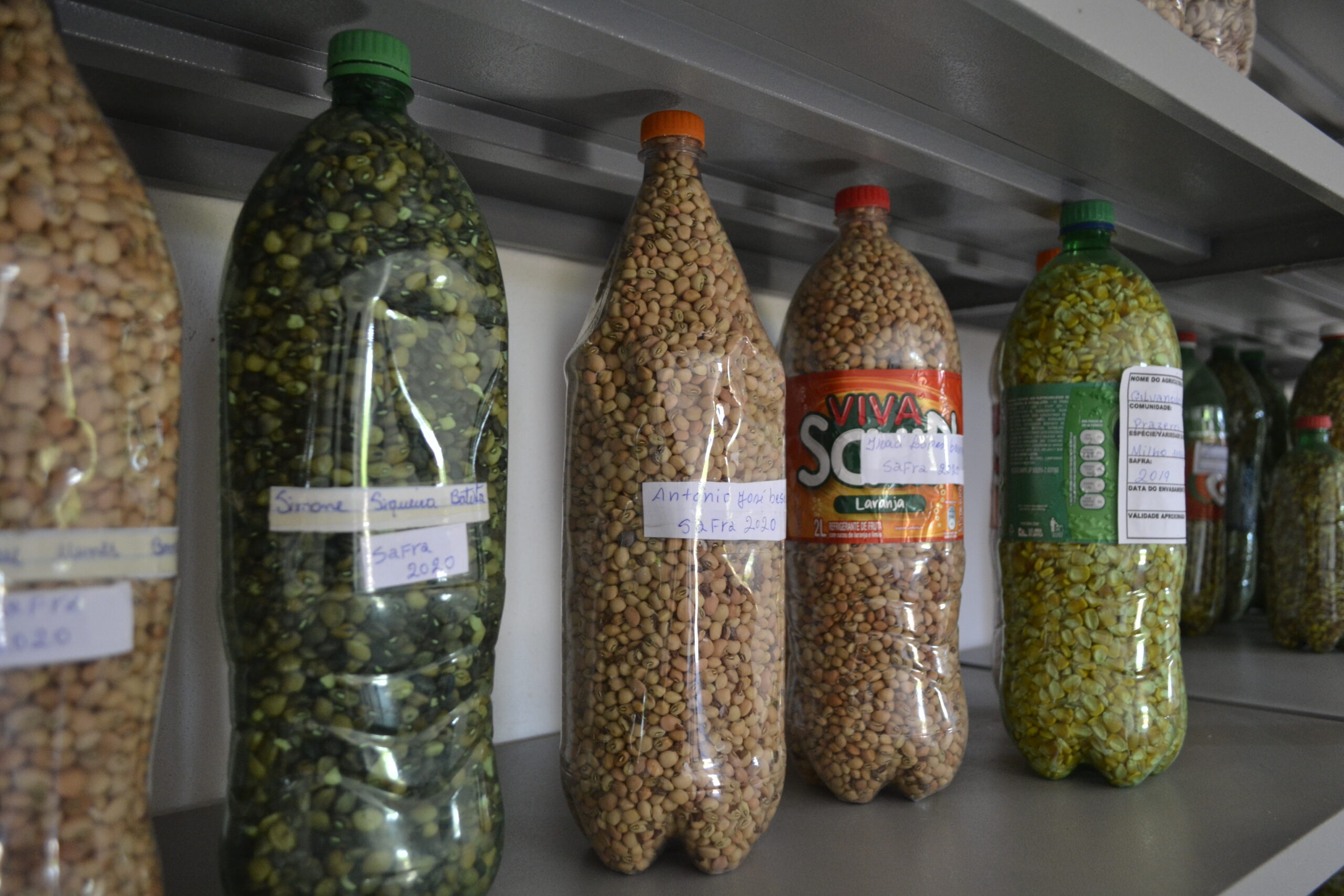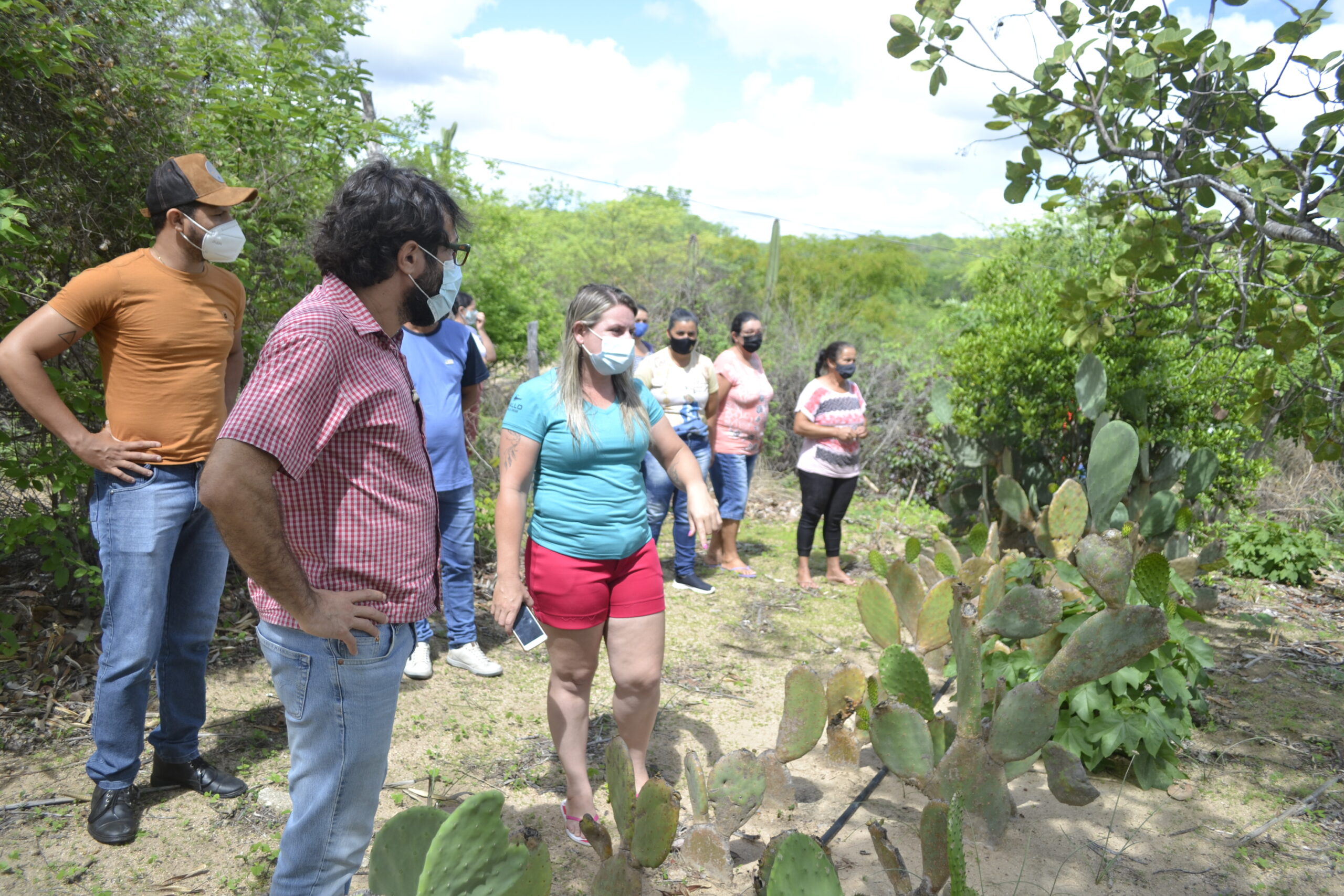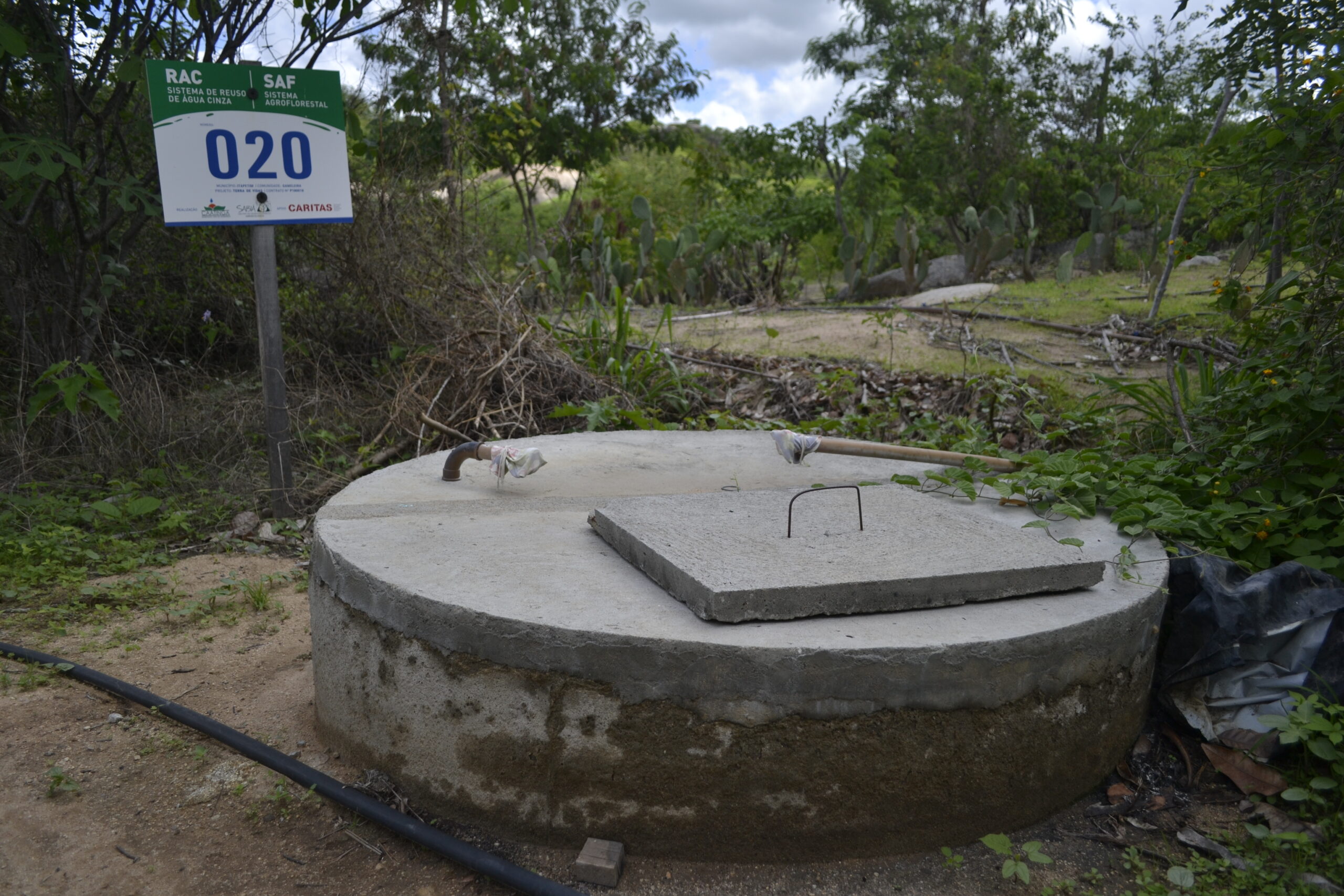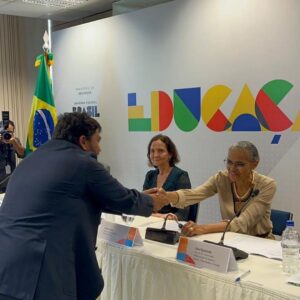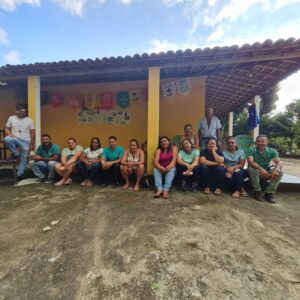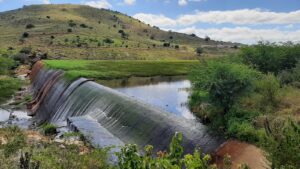On a visit to the municipality of Itapetim (PE), the coordination of Centro Sabiá attests to the success of projects such as seeds from the semi-arid region, cisterns and reuse of gray water/agroforestry system
Imagine a small forest of native trees, fruit and other plants that will serve as food for animals, irrigated daily, in the middle of the semiarid region. Difficult to draw such a scenario? Because thanks to RAC/SAF (Grey Water Reuse/Agroforestry System) technology, environments like this are increasingly possible in the semi-arid region of Pernambuco. Itapetim, in the hinterland, is one of these places: developed from the technical-pedagogical advisory work of Centro Sabiá, the systems benefit 16 families in the municipality.
The coordinator of Centro Sabiá, Alexandre Pires, visited some of the systems and talked with the communities involved about the day-to-day technology and the possibilities for improvement: “Farming families in the semiarid region reaffirm at each meeting the need for greater water security for the sustainability of their agroecosystems. And the RAC/SAF is an opportunity to have a third water supply for irrigation purposes. However, it is necessary to invest in advisory services until the families incorporate the proper management of the systems.”, he says.
In the Gameleira community, Alexandre got to know the Pereira Family system and how it works. In addition to already benefiting from the cistern, and with the RAC/SAF, the family has recovered an area of the property with Agroforestry with a variety of plants: Ipê, pau brasil, eucalyptus, ciriguela, belly, mango, coconut, soursop, chestnut from India, safroa, craibeira, gandu, olives, pitanga, pine, leucena, cajá, mango, pitaya, cotton and even apple trees, among others. “And we still want to plant more”, says Dona Ivone with a proud smile on her face. Alexandre can still visit the place where the spring recovery project will be developed, benefiting the headwaters of the Pajeú River, in an action by the Rede de Mulheres Producers do Pajeú, a partner of the community and Centro Sabiá.
Also in the community, the coordinator talked to members of the Women Fighting for Development Group and local community leaders, debating important actions for the semiarid region, such as expanding cisterns and reusing water and preserving seed banks and local vegetation – the women’s association has a seedling with several seedlings of native plants that was much celebrated. “The work of these women is a clear demonstration that living with the semi-arid region can transform people’s lives in this territory, as long as they have access to knowledge and material conditions”.
Still in Itapetim, in partnership with agricultural technician Orlando Santana, Alexandre was able to broaden the debate on actions for coexistence with the semi-arid region through participation in the programming of radio Pedras Soltas and, finally, in the Ambó community, the coordinator and technician also talked to farmers and visited another RAC/SAF system. But what most caught Alexandre’s attention was the seed bank, one of the most effective technologies for democratizing healthy eating in communities, as it is organized in a democratic and collaborative manner. “We need to have a public policy on creole seeds in Pernambuco, like other states in the Northeast. The experience of ASA’s Sementes do Semiárido Program is inspiring and decisively an opportunity to strengthen the food sovereignty of the peoples of the Semiarid Region”.
Nothing found.

